By Martha Amore
The day Maura arrived it was cold in the way Fairbanks often is in January, fragile with frost, when it seems that even blowing on the trees will crack them to the ground. Every breath burns your lungs like smoke, and your Snowpacs squeak in the bright white snow. Ann was quiet the whole way to the airport, and I knew she was nervous by the way she kept taking her mittens off and then tugging them back on.
“A whole week isn’t going to be easy,” I said. We lived in a one-room cabin with a loft, and having a guest meant setting up a bed on the couch by the woodstove. Not much privacy. “We don’t really have the space.”
“Ted, I’ve told you a hundred times, Maura doesn’t mind.”
“Okay. As long as she’ll be comfortable on the couch.” A raven swooped down, catching a draft of air directly in front of our car. I kept thinking it would fly off, but it stayed right in front of us like it was leading us somewhere. “It’s funny that after hearing about Maura all these years, I’ve never even seen a picture of her.”
Ann laughed. “She’s such a luddite. She thought technology had gone too far even twenty years ago, when we just had email. She’s doesn’t even have a cell phone! She’s not the addict you are.” She pushed her long bangs from her eyes, then muttered, “Always fiddling with your iphone.” ”
I tapped my fingers on the steering wheel. I wanted to like Maura and was prepared to do my best in that department, but it wasn’t the best time for a visit. Ann and I were having issues. Better said, Ann was having issues with me. I felt lost, like she wanted something, but wouldn’t tell me what or how to give it.
“So, what does she look like?” I asked.
“Well, I don’t know. She’s got brown hair, blue eyes, she’s kind of tall, I guess.”
“So does she have long hair?”
“Not the last time I saw her. I guess that was a lot of years ago, though.”
“But, I mean, does she look like a woman?”
“What kind of question is that?”
Ann fixed me with the look she always does when I say something idiotic. “Well, I don’t know, some of them don’t, right? And then some look like any other woman.”
“Well, she certainly doesn’t look like any other woman.” Ann tugged her mitten back on and smiled down at it. “She’s the most beautiful woman in the world.”
I gripped the steering wheel. I tried to imagine Ann giving me a compliment like that: Ted is the most wonderful man in the world. Nope. Wouldn’t happen.
I reached over to Ann and grabbed her by the mitten. “I think Maura has to take second place in the most beautiful woman contest.”
She peered at me from beneath her bangs, but the smile she offered had more to do with pity than gratitude.
I turned my gaze back to the white road. The raven wavered on its air current, gliding up and down, then tilted a wing and in a snap, was gone.
Ann met Maura way back when they were neighbors in San Francisco. My wife was twenty-two and just out of college, and she was having a hard time getting rid of a boyfriend. I guess the guy was a real nut job, unemployed and on heroine, taking money from her, and crazy jealous. But the real trouble started when Ann got ready to leave. He threatened suicide and somehow put it in Ann’s mind that she couldn’t leave him, like she didn’t have the right. She says she got to feeling so alone, with no one to talk to or help her, that she herself started thinking about suicide. When she told me that part of the story, she said it in her normal voice, just like she was telling me what was for dinner. Somewhere within me an alarm was clanging, I mean she was talking about suicide like it was no big deal, but I just nodded my head and said, “Uh huh.” How else could I have reacted?
Maura reached out to Ann and helped her get rid of the guy, I guess just by being a friend. There’s one thing Maura did that made quite an impact on her. In fact, Ann has told me this part of the story several times over the years. What happened didn’t sound like much to me, but Ann said it changed her life. What did Maura do? One night—this was just after Ann had thrown the boyfriend out and she was feeling low—she went over to Maura’s, and next thing she knew, Maura was leading her into the bathroom with a folding chair. She wrapped a towel around Ann’s neck and had her lean back in the chair over the tub, then she took down the nozzle and washed her hair. It’s a mystery to me, how this could change a person’s life, but I kept that to myself.
When we arrived at the airport, Ann said I could pull up and wait in the car. I thought I’d better park and go to the baggage claim with her. As we walked through the sliding doors, I grabbed her hand, which was awkward because now we both had on our thick mittens. We stood watching the passengers stream into the claim area.
I knew Maura right away, even before Ann squeezed my hand and let go. She certainly wasn’t the feminine type, but the real surprise was that she was older, I mean middle aged, and then I thought of course, she’s nearly fifty years old. My wife and I are both thirty-six, and that’s a long way from fifty. I smiled and leaned back against the wall while Ann threw her arms around Maura, making a big fuss over her.
She hadn’t been so cheerful for a while. One day not long ago I came home to find her staring out the back window. It was late spring, the backyard covered in old snow and dog shit. Not much to look at, but there she stood, her hand cupped under her chin, her eyes glassy. Ann has green eyes, but they are the sort of green that in bright sunlight take on a whole new dimension. Blue swirled with brown and even yellow, layers of color that invite you deeper and deeper into them. There’s nothing better in the world than looking into Ann’s eyes. But that day, all wet with emotion, they were two great pits with no bottom, no end. I hated when she got like this; I never knew what to do. I kept hoping she’d go out for a walk as she normally did when she was down. Finally, after what seemed an awful long time, Ann turned and grabbed her coat off the hook. It was spring, but cold as any mid-winter day—I mean, twenty below—and she was heading out without her bibs.
“Sort of cold,” I said, “for just jeans.”
She looked at me as though I’d spoken Cantonese. Then she did a peculiar thing. She backed up against the door and sank down to the bare floorboards. She just sat there. Her eyes were trained on me like she was going to speak. She didn’t. The longer she kept quiet, the less able I was to open my mouth. Time ticked past, and soon an old feeling barreled through me. I felt exactly as I did when my mother used to cry.
She broke down pretty often in the summer after my dad died. She used to send me outside where I’d sit in the dirt against the house until it was safe to go in. I can still picture how her face looked as she ordered me outside, like all the sadness of the ages was crushing her features. We lived in Nebraska, and I remember one time in particular, sitting there in the dirt and watching a storm brewing in the distance. Bad weather moves fast in Nebraska; I could see it coming from way off. Big, black tumbles of storm cloud moving across the prairie. The end of the world.
Ann broke the spell between us that day by pushing herself upright against the door. She removed her coat, stepped into her bibs, and piled all the rest of her gear on, even her sunglasses, so that I couldn’t make out any part of her. I managed to go to her then and hug her. Her body felt tiny under all those down layers, like a little bird, but she put a hand to my chest and pushed me away with surprising strength.
At airport, I kept waiting for Ann to introduce us. I felt like an idiot just standing there watching them. It was Maura who finally turned to me.
“So this is you,” she said, shaking my hand. She had a firm grasp, and the way she looked at me, it was like she was sizing me up. But then she smiled, and I could see the very feminine quality of her eyes and cheekbones, not half bad actually, and I managed to smile back.
“Think you can handle the Fairbanks cold?” I asked.
“Definitely not,” she said. “It’s hard for me to function without palm trees.”
Ann laughed. “Hey, you won’t believe it, but we have one of those!”
Maura shook her head, looked from Ann to me and back again.
“It’s true, Maura, in the snow right in front of our cabin. It’s plastic, but what the heck.”
“So I might just survive this trip.” She laughed and put her arm around Ann’s slender shoulders and pulled her in for a hug, saying something that I couldn’t make out. Ann flushed with a smile and said, “Me, too.”
Ann had insisted Maura ride shotgun, a situation that I bet neither of us was too happy about. At some point during the ride, though, we discovered we were both Green Bay fans. This took us the rest of the way home, and I had to hand it to her, she knew football. Then when we walked through the door, although it was only three o’clock in the afternoon, I asked her if she wanted a beer and she said, “Sure.” Ann never had a drink until after dinner, and then just one or two, and I thought that it might be okay having Maura around for a while.
We sat at the kitchen table, not far from the woodstove that I’d stoked to a blaze, while Ann put out some chips and salsa.
“Wow,” Maura said. “Who made the salsa?”
“I did,” I said. “We grew the tomatoes and peppers ourselves.” I was happy for the chance to talk about our summer garden. I loved doing the garden with Ann, working side-by-side in the dirt, not talking but just being together in the evening sun. It always put both of us in a good mood. “We try different seeds every summer, heritage seeds, so it’s always a bit of an experiment.”
“You get a good garden this far north?”
“Land of the midnight sun,” Ann said, taking a seat at the table with us. “Things grow like crazy up here.”
“Of course, and you’ve got that green thumb,” Maura said, smiling at her. “I remember that.”
When Ann sat down, Maura and I both turned and focused on her, and I knew any talk about the Packers would have to wait.
“When I met Maura, she had all these plants in her apartment. There were so many, I used to go over and help her water them.”
“And you’d sing to them,” Maura said.
“You’d sing? To the plants?”
“She’s got an amazing voice.”
“I know,” I said. “I’ve heard it. You don’t have to tell me.”
I broke a chip in the salsa and focused on fishing it out with the other half. Nobody said anything for a while, but we all kept at the food. Pretty soon Ann stood up. “Water anyone?”
We both nodded. When Ann returned with our glasses, Maura ran a hand through her short brown hair, forcing a cowlick to lay flat. “You know, I should have come up here a long time ago.”
“Well,” Ann said. “I won’t argue with you there. But you know, it is what it is. Things were complicated.”
“What was complicated?”
Ann and Maura looked at each other, but neither spoke. Finally, Maura said, “It was stupid, really. My girlfriend wasn’t comfortable with the idea.”
“Yeah?”
“I guess she was the jealous type.”
I chewed and swallowed too soon, a jagged chip going down hard. I took a drink of water.
“It was stupid,” Maura said.
“So what made her come around on the idea?” I asked.
Maura turned to Ann, so it was Ann who answered me. “They broke up.”
“Oh.” I blinked back at her trying to absorb this new turn, then faced Maura. “You broke up?”
“We had a lot of good years,” Maura said. “But you know, people change.”
“True,” Ann said. “People do change. They do.”
“In some ways,” Maura continued, “as people get older, I think they actually get younger. At some point you start to realize that time is limited, so you get back to the things you used to want, old dreams and all that. Now or never sort of deal. Do you know what I’m saying?”
I laughed, and it came out harder than I meant it to. “It’s called a mid-life crisis,” I said. “Like when old men buy Lamborghinis.”
“No,” Ann said. “I don’t think that’s what she’s saying at all. You’re talking about getting around to what’s really important in life. Gaining an honest perspective. And you know what? I think it can happen at any point in a person’s life. It’s actually growth, what we’re talking about.”
“Growth?” Why was I arguing with them? I wished we could get back to the Packers. “But how can you call it growth when you’re going backwards to what you used to want?”
“Backwards, forwards, it doesn’t really matter. Growth is growth, the way I see it,” Ann said.
“Exactly,” Maura agreed.
They smiled at one another as though they’d just decided something.
I thought we might go out to dinner, but the women wanted to cook. Ann bought a thirty-six dollar Cabernet the day before, which she now poured into two big wine glasses, the only two we owned, one for Maura, the other for herself. They clinked glasses and took a swig before it occurred to Ann to fill a ceramic mug for me. As we chopped vegetables for the stir fry, Ann propped the cabin door open for a minute. We called our woodstove “Monster” for a good reason, a bit too much stove for our one room cabin. Maura peeled off her hoodie, and underneath she was wearing a black tank top that revealed some pretty muscular arms, for a girl anyway. She also had several tattoos.
“New work?” Ann asked.
“Guess I got a couple more since you last saw me.”
“Let’s see,” Ann said. She ran her fingertips over a faded black Chinese symbol on Maura’s bicep. “I remember this one. It means faith, right?”
Maura laughed. “I can’t believe you remember that.”
Ann took up Maura’s other arm. She traced a finger along an intricate circle of dark green lines. “So how about this one?”
“It’s a Celtic knot,” Maura said.
“What’s it mean?”
Maura shrugged as though it meant nothing, but Ann arched her eyebrows and waited until Maura answered. “Okay, it means, uh, love. Love and trust.”
“Faith, love, and trust.” Ann pressed her lips together in the same way she did when she was teasing me. “Do these tattoos actually work? Do they bring all that into your life?”
Maura smiled back at her. “It’s just ink, honey, not magic.”
Jealousy seared through me. I jumped up from the table and threw a reckless arm around Ann. “What about that one?” I pointed to the design of interconnected triangles on her forearm, inserting myself between them. “So what’s it mean?”
“Nothing. Really, I just liked the design. I got it a long time ago.” Maura took a swallow of wine. “Actually, just after you left, Ann.”
“And it doesn’t mean anything?” Ann asked, a distinct hurt tone rising in the question.
“Just a bad day on Haight Street.”
Ann brightened. “We lived on Lower Haight.”
“When you left, it all changed,” Maura said. She glanced at me and hurried to add, “A bunch of new places opened up, all touristy. It’s horrible. The whole city, in fact. I had to move across the Bay. To Oakland.”
“I wonder if our old building is still the same?”
“It is. I go by there from time to time. It still looks exactly the same, right down to the old hippie sitting in the doorway. Although he’s probably a different guy.”
“Changing of the guards?” Ann said, and they laughed.
I began to feel stupid standing between them. I poured more wine into my mug and carried it to the living room chair. Our place was small, but the hiss from the woodstove kept me from understanding anything they said when their voices dropped. I could only make out the intimate sounds of conversation, and of course the laughter. I looked out the picture window, squinting in an attempt to see past the bright interior reflection and into the black night. When I glanced back to Ann, she was flushed and smiling, happier than I’d seen her in a long time. The old feeling stole over me again, storms clouds moving across the prairie. Why couldn’t I make her smile like that?
Later, I lay awake in the loft, waiting for Ann to come up. The women had several tea candles burning down there and, combined with the larger flame of the woodstove, pitched crazy shadows along the cedar logs of the wall and ceiling. Their voices rose and fell in flickering rhythm with the shadows. I woke up in the morning, alone. I stayed under the down blanket until I heard the stove door clang open. I climbed down from the loft to find Maura piling in the logs and kindling. Ann was still curled under the sleeping bags on the futon. She was awake, though.
“What time did you come down?” I asked her.
“I never actually went up,” she said, guilt in her voice. “We talked until really late, and next thing I knew it was morning.”
“Wow. Must have been some conversation.” Two angry steps and I was at the woodstove. From behind, with that short hair, Maura could be a guy. What’s the difference? I thought. Ann could just as well have spent the night on our couch with some old boyfriend. “I’ll take care of that,” I said to Maura
I crouched and crumpled up a sheet of newspaper, then crammed it under the two birch logs in the stove. I struck a match several times until it finally lit and held it to the paper.
“Ted, we have fifteen years to catch up on,” Ann said.
The edge of newspaper held the flame just for a moment, then turned black and went out. “This thing is a bitch to light in the morning,” I said.
Maura returned to the couch, but then thought better of it. She took a seat in the chair across the room from Ann.
“Are you listening to me, Ted?”
“Yes, I hear you! I’m two feet away!”
She sighed and looked up at the ceiling. “Hearing and listening are two very different things.”
What on earth did she want from me? I ripped more newspaper for the stove, and then with not even the crackle from the stove, the room fell dead silent.
“Fairbanks in January,” Maura finally said, rubbing her palms together. “The lengths I go to!”
For what? I thought, and I struck another match for the stove.
Ann had to go into work for just a few hours that morning, and it was decided that I would take Maura for a snowshoe on the river. We were quiet on the short drive to the access, and I had the sense that neither of us was looking forward to this trip. Every time I glanced at Maura, she was looking out the window like she was searching for something, her eyes not just scanning all that white landscape but studying it, memorizing it. I felt unhinged. Reminded me of this guy I once went hunting with, a white guy but he grew up way north of here, outside Barrow, and he wouldn’t talk much or even take drink, and everywhere we went, he was looking and listening just like Maura, like his life depended on every stunted pine.
I parked the truck in a small empty lot enclosed by a high berm. It was like me and Maura were all alone in the white world. I threw open the tailgate and hauled out our gear, and when I turned, Maura was way over by the frozen river, surveying up and down the bend. There was no wind, and her vaporized breath hung above her like smoke. I got a chill just then, way down under my base layer. Did she come all this way in the middle of winter to steal my wife?
We made down for the river and then continued on, single file with me in front, which was a relief—this way we didn’t have to talk. Pretty soon, I realized I’d overdressed. I was sweating hard, dripping from my armpits down to my waist, my undershirt soaked through. How do you fight for somebody? I understood how the moose went about it, which made a lot of sense to me at the moment.
We hiked for a while upriver, and when I turned to double back down our trail, she didn’t complain. Neither of us much wanted to be there.
At one point, Maura called out to me. “What’s this?”
She was pointing to a trail in the powder, her hood up, a scarf wrapped around her mouth. All I could make out were her expressive brown eyes, the lashes white with frost.
“Porcupine track,” I said, a bitter edge to my voice.
“How can you tell?”
“Because I know what a porcupine track looks like.”
“But there’s no footprints,” she persisted. “It looks like something was dragged through the snow.”
I pictured her washing Ann’s hair, and I felt pinned under the weight of those big, black clouds. “Something was dragged,” I said. Sweat dripped into my eyes. I was suffocating in the big parka. “The porcupine’s fat ass!”
Maura tilted her head back and eyed me, wary, like a stray dog.
My heart became a separate animal thumping away in my chest. I unzipped my parka. The cold air hit me and quickly started coursing through my blood. I didn’t like her. Not one thing about her.
Maura scanned the frozen riverbed, one bank and then the other, white silence everywhere. She looked up at me, still wary, and said, “Look, I know this isn’t easy.”
In the quiet space between us, there was still a chance that all was fine, a possibility that Maura would leave in a few days, and time would mend whatever issues Ann and I were having. As we stood facing one another, my cotton sweatshirt, wet at the chest, froze into a hard plate. I began to shiver, and my fingers went stiff. Maybe the end of the world had finally come.
Just then, I heard a noise. A sound like a giant insect might make. I listened, and there it again.
“What is that?” Maura said.
We climbed up the bank and walked toward the noise, peering into the trees. Something big and dark moved quickly, straight up and down.
“Holy shit,” I said.
Maura crept closer to the stand. “I think it’s some kind of bird.”
We moved between the branches to where the creature lay. “It’s an eagle!”
Immature, but still a giant. I used to see eagles all the time in Anchorage, but not this far north. One wing spread out along the white snow, stretching several feet, and when it raised and swept back down, the air fanned our faces. Blood stained the snow under the wing.
“It’s hurt,” Maura said, moving in.
“Watch out!” I put my hand to her shoulder and pulled her back.
She shrugged out from under my hand. As she bent over the enormous dark bird, the wing beat once more, but that was it. The eagle just lay in the snow and her head did not rise, though she fixed her cold eye on Maura.
“She’s a goner,” I said.
“No,” Maura said. “Maybe not.” She reached a hand down to touch the bird, and the wing moved once again, more slowly.
“I wouldn’t do that.”
And then Maura was taking off her parka.
“What are you doing?”
“I’ll wrap her and we can take her to the vet or Fish and Game or wherever.”
“No,” I said. “No way. That bird is huge. It might freak out. Look at those talons.”
She squatted down next to the bird and eased her parka over it.
“Look, if it’ll make you feel better,” I said, “we can call Fish and Game when we get back.”
“She’ll be dead by then.”
“That’s nature.”
But Maura was gently wrapping the monstrous bird in her parka. The eagle’s head was limp, and that coupled with the intensity in the bird’s eyes turned my stomach. There was blood everywhere now. Maura was moving the bird, tucking her coat around it. The splotch in the snow grew bigger and bigger. All along Maura’s shoulder, chest and arms, her white fleece had gone red.
“Help me carry her. We have to try!”
I kneeled next to Maura. The chances of the bird living were pretty slim, but if we left, it would die for sure. I didn’t want that. I grabbed one end of the parka. I made sure to wrap the fabric tight in my hands and stand clear, but Maura held the bird right up against her chest. Feathers wet with blood stuck to her white fleece. Through the bottom of the parka, I could see torn skin and tiny bones laid open in the cold. I couldn’t look.
“It’s okay,” Maura said. She gentled the wing back under her coat and slid onto the bench seat with the bird on her lap and nodded to me to swing the door shut. I stood in the snow, looking across the empty parking lot. Then I swung the door shut and walked around to the driver’s side. I paused with my hand on the door handle. The animal was still struggling and now there was blood smeared on the seat. I didn’t know what else to do, so I slid behind the wheel and started the engine. The noise startled the bird. It began a sharp chirping, the sound I imagined a cockroach might make, and Maura struggled with the moving parka. Then the bloodied head emerged, and the eagle locked its cold, agonized eye on mine. I shrank back.
“Jesus,” I said.
“It’s alright,” Maura cooed, but whether to the bird or me, I didn’t know. “It’s going to be alright.”
On the road, Maura bent close to the swaddle. A warm blast from the heater circulated the stench. It smelled no different than downed field game, moose or caribou, a particular scent of iron and fear. After a while, the bird lay still. Maura’s focus was intense, as though she were willing the creature to live. I was moved by her effort.
When we arrived at the Fish and Game office, I opened my door and the bird began to thrash once again. I dashed around to open Maura’s door. Streaks of blood and feathers covered her chest and face.
“You’re going to have to take her,” she said. Talons broke free and sliced Maura’s snow pants. She pushed it back under the parka with the thick of her mitten. “My arms are too tired. What you’re going to do is lean in, gather all the fabric around her, and hold her tight right up against your body. Don’t loosen your hold even for a second.”
“I can do that,” I said, though I wasn’t sure I could.
I leaned into the cab, holding my head as far back as possible. The stench hit me, and I thought, This is what agony smells like. And then I was picturing the eagles I used to see around Anchorage, soaring in gentle circles way up in the bright sky. What I was taking into my arms bore no relation.
“You’re doing fine,” Maura said.
The bird began to move, pushing against my arms and chest. I instinctively clamped down against her. “I’m here,” I murmured. The closeness of the bird was oddly intimate, and her movements weren’t the wild thrashing I’d imagined, but rather rhythms that I began to anticipate. It was a sort of dance we were caught up in.
“Let’s go,” Maura whispered.
I took a step, and then another step. I shifted with the changing dimensions of the bird in my arms. We were too late and what I held was most certainly going to die, but I’d never been this close to an eagle before. I stayed circled around the bird until she finally quieted and lay against me. And then I thought, This is trust.
[divider]
About the Author
 Martha Amore is an award-winning author and teaches writing at Alaska Pacific University and the University of Alaska Anchorage. She achieved her Masters of Fine Arts in Fiction from UAA, and currently resides in Anchorage with her husband and three daughters. Her first novella recently came out in the anthology Weathered Edge: Three Alaskan Novellas.
Martha Amore is an award-winning author and teaches writing at Alaska Pacific University and the University of Alaska Anchorage. She achieved her Masters of Fine Arts in Fiction from UAA, and currently resides in Anchorage with her husband and three daughters. Her first novella recently came out in the anthology Weathered Edge: Three Alaskan Novellas.
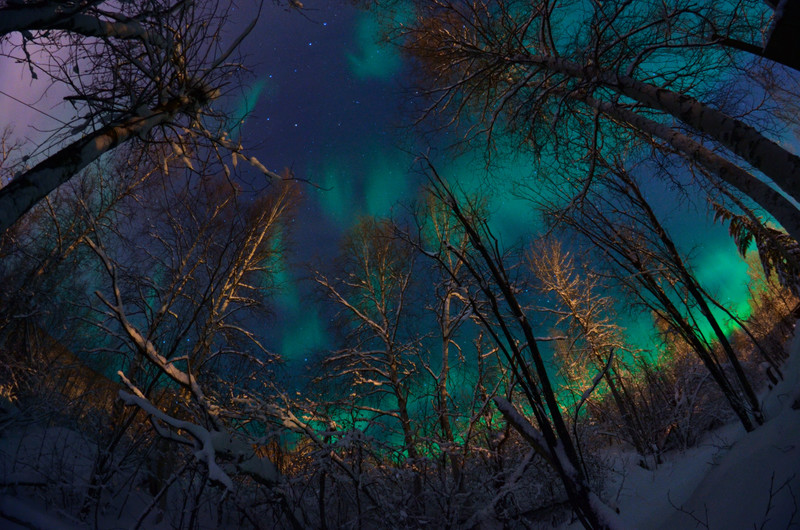
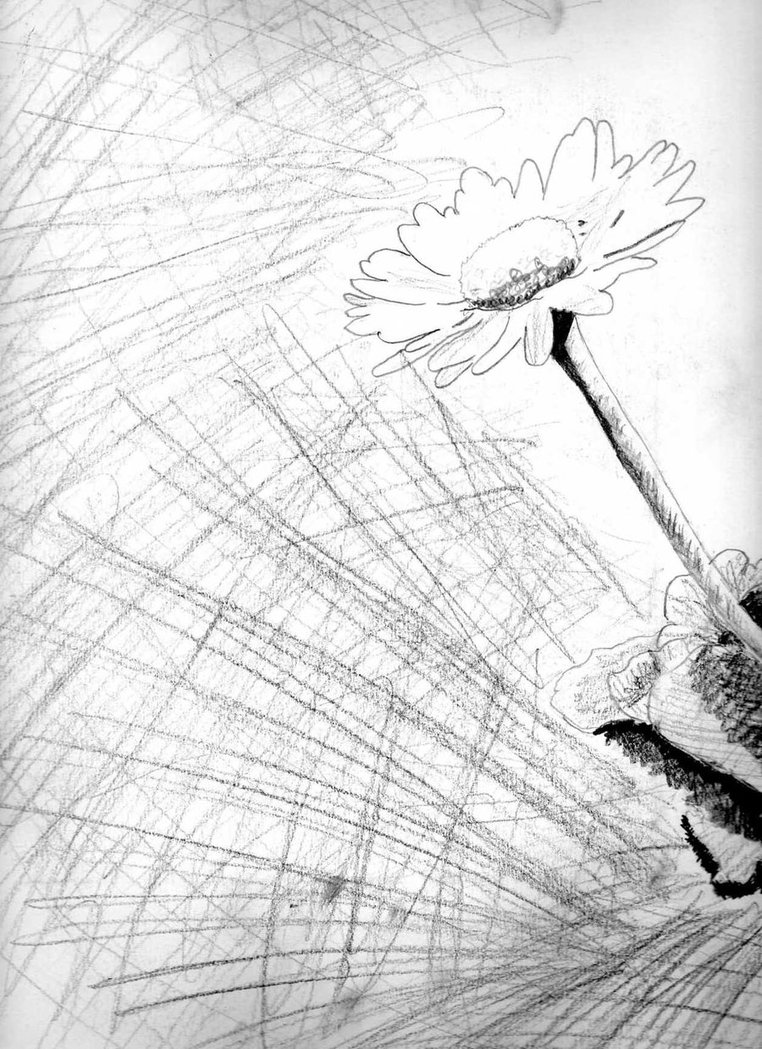
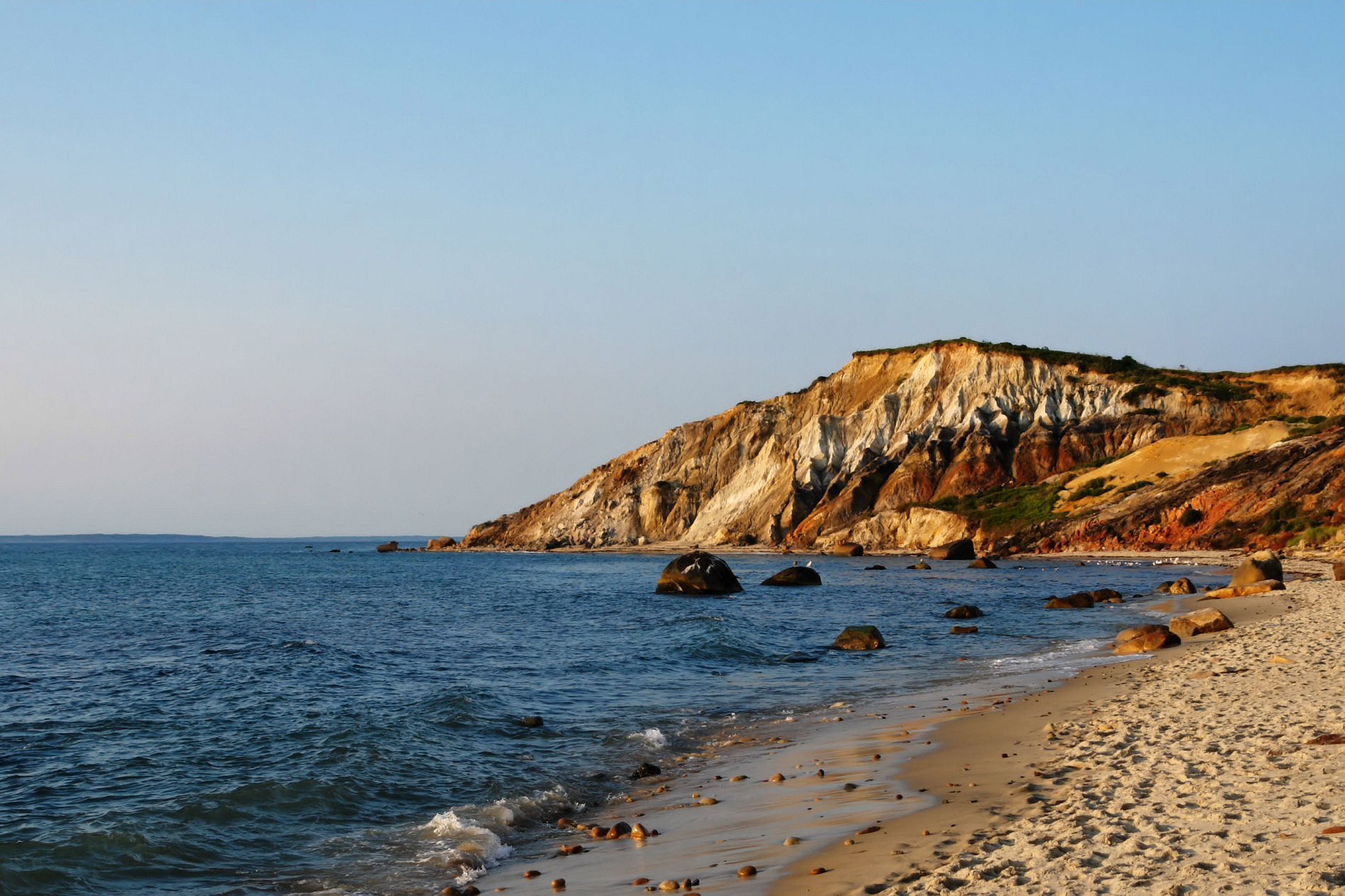
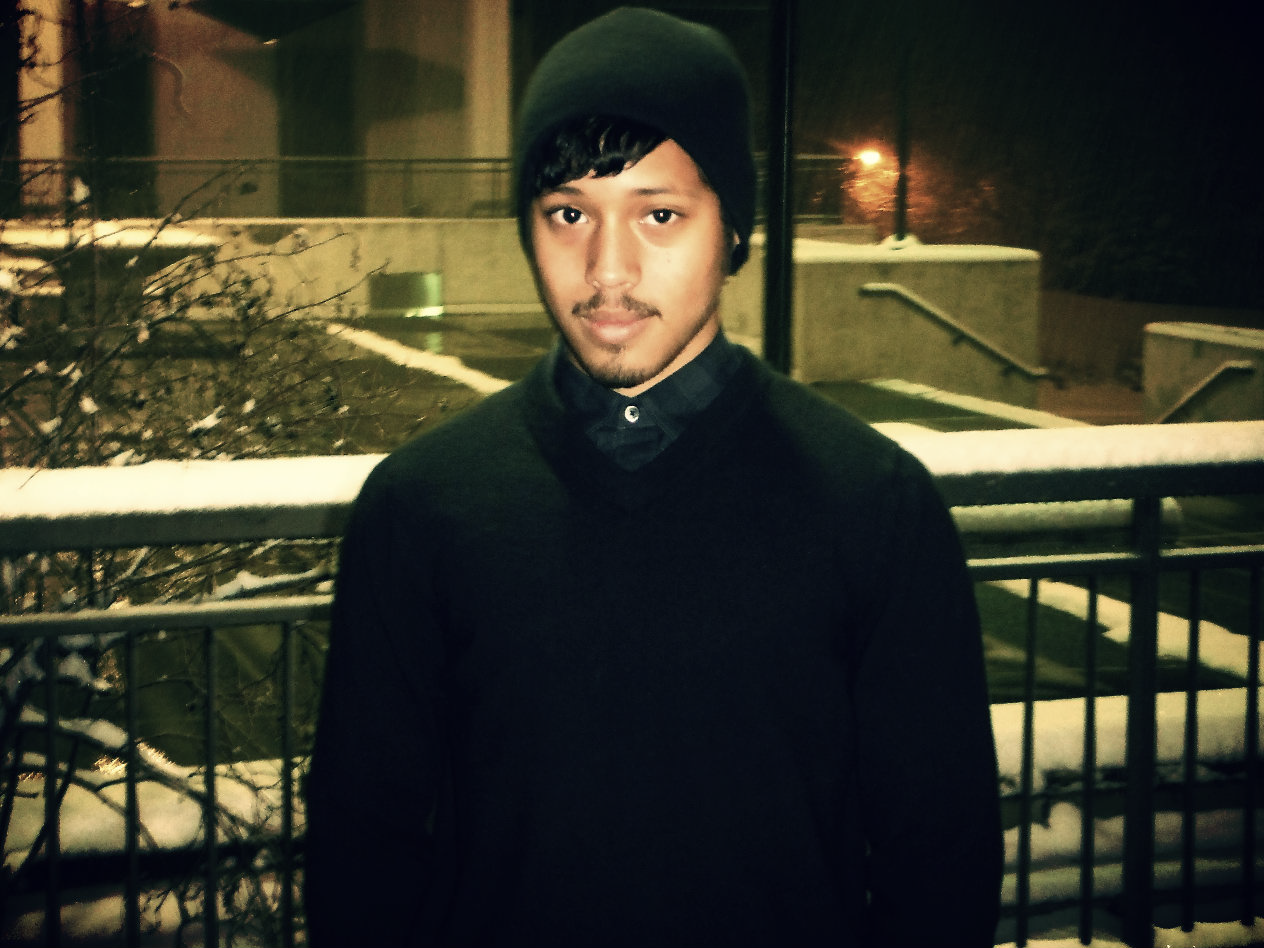
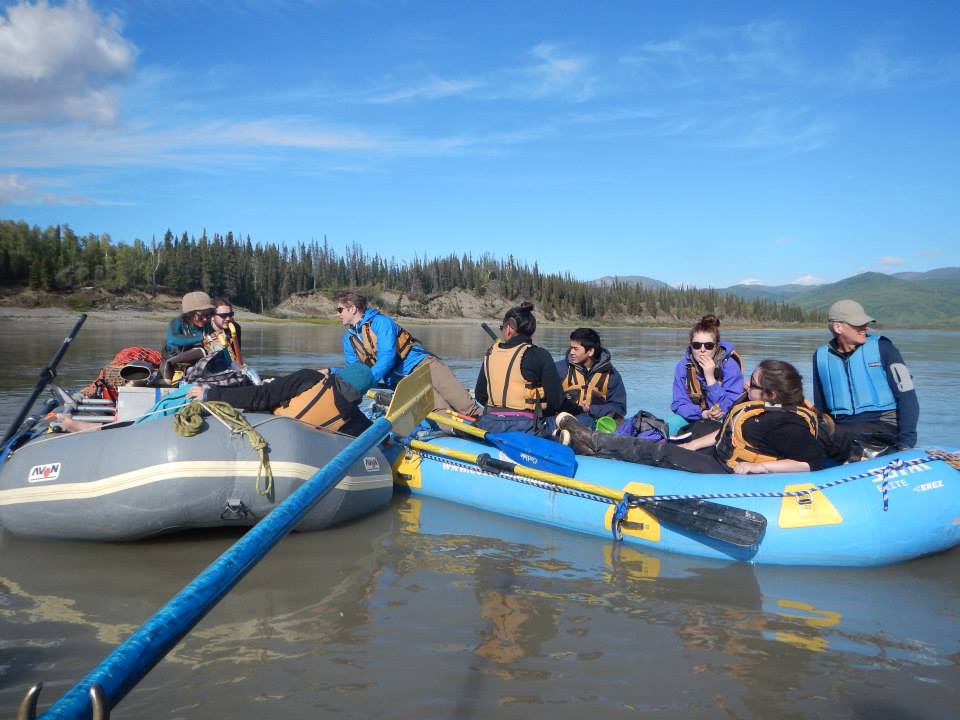
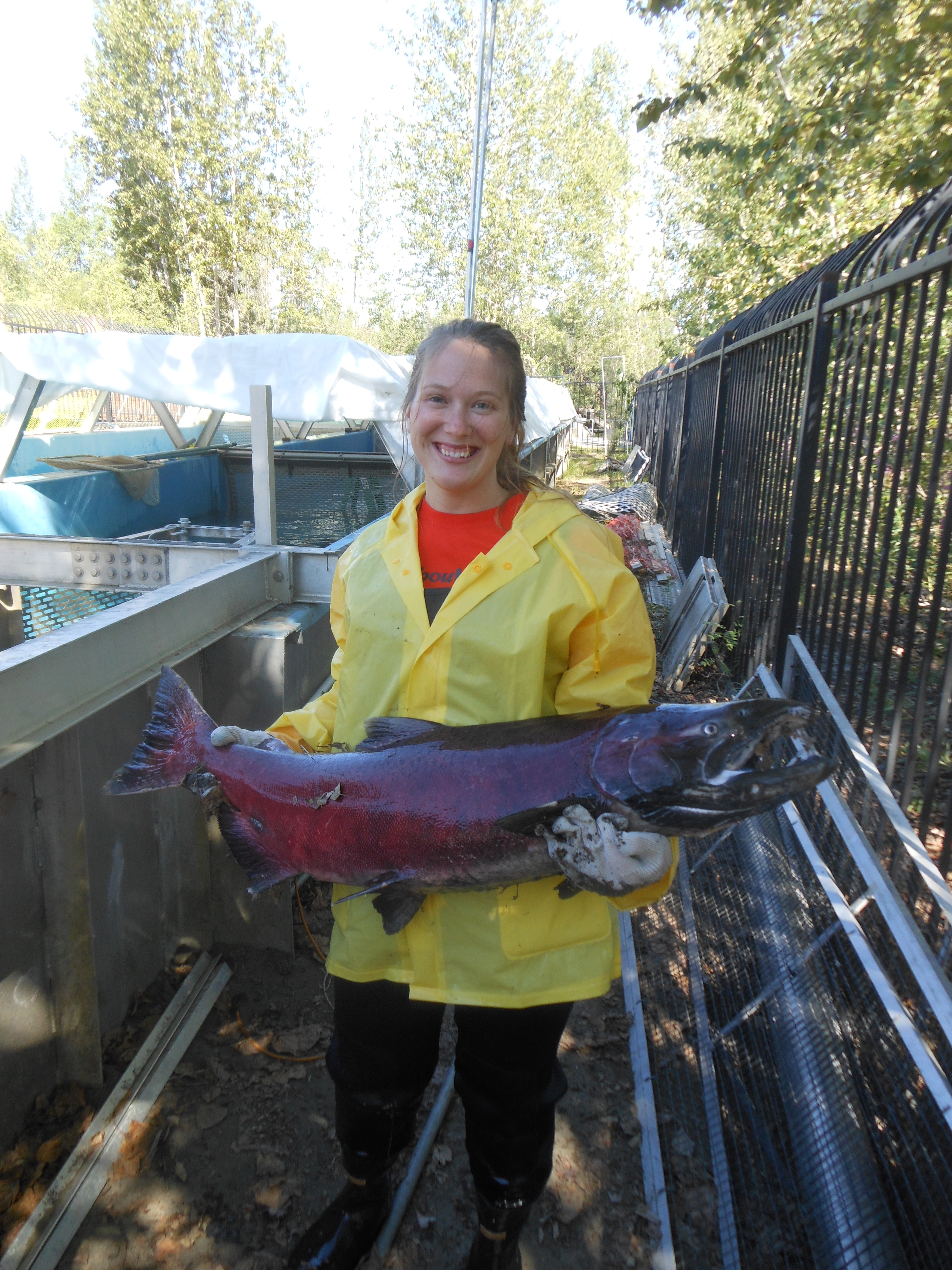
One Comment
Elena Bushue
I really liked your essay. I happen to love fairbanks. Your introduction was very well written, I could picture myself being in Fairbanks in January (not like most Alaskans want to be anyways). I enjoyed how you used dialogue in your essay, instead of just talking about your incident. It provides strength, and a sense of feel. I loved that you used the bird as a real life example. Your conclusion was very well written! I don’t think I could have written a conclusion as well as that. This essay was really good.